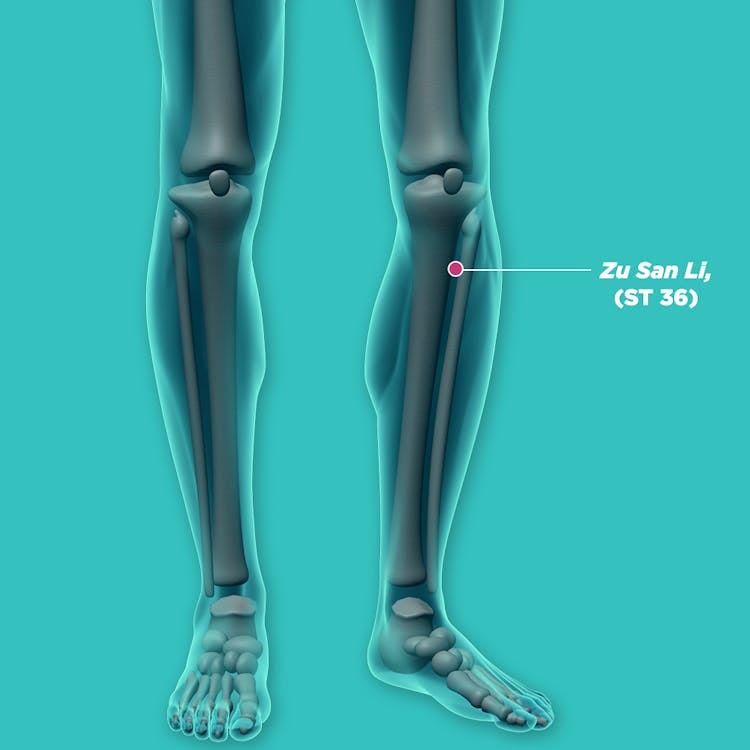Reviewed by Dr Nurul Aishah Jamaludin and Physician Brandon Yew
Is a Slow or Fast Metabolic Rate Better for Weight Loss?
Published | 5 min read
Your metabolic rate determines how much energy you use from the food you consume. Understand it better to make it work in your favour.
Your metabolic rate is defined as the amount of energy your body expends over a specific period. It determines how much energy your body’s cells burn from the food you eat.
Most people think that a high metabolic rate equals more energy
Regardless of whether you have a fast or slow metabolic rate, your body will store any excess energy in fat cells. Weight loss and gain are based on the number of calories in versus the number of calories out. If you eat and drink more calories than your body can burn or expend, you’ll gain weight and if you eat and drink less than your body uses throughout the day, you’ll lose weight.
Here’s what clinical findings and Traditional Chinese Medicine (TCM) have to say about slow and fast metabolic rates, and which is better for weight loss.
What Goes into Total Metabolic Rate?
What Slows Down Metabolic Rate?
For most of us, excessive weight gain is caused by an unhealthy diet and a sedentary lifestyle. If you’ve been overweight for some time, your metabolism adjusts to maintain this weight.
A recent 2021 large international study revealed that your metabolic rate remains stable from age 20 to 60. This confirms that most people under 60 can’t blame age-related slow metabolism for weight gain.
What Increases Metabolic Rate?
Researchers don’t know for sure why two people who are of the same body composition and weight burn calories differently at rest. But we do know that bodies with more muscle mass and less body fat tend to burn more energy. This is because it takes more energy to build and maintain muscle mass.
The only other way to increase the amount of energy you burn is to be more physically active.
Maintaining a healthy diet, getting proper rest, and following a strength training regimen are not easy feats these days. But research finds that 15% of people can maintain healthy weight loss by having healthy habits.

What Are Metabolic Disorders?
Some diseases cause your metabolic rate to abnormally slow down or increase. Two of them include:
- Hypothyroidism: Insufficient thyroid hormone in your bloodstream slows down your metabolism.
- Hyperthyroidism: When an overactive thyroid gland increases your metabolic rate drastically.
Hypermetabolism is a condition in which a person experiences abnormally elevated levels of resting energy expenditure. It can lead to severe illnesses such as acute kidney injury.
Metabolic syndrome is a combination of conditions that increases one’s risk of developing diabetes and cardiovascular disease. These conditions include insulin resistance, hypertension, high cholesterol, and abdominal obesity.
TCM Perspectives on Metabolic Rate
In Traditional Chinese Medicine (TCM), having a
Too much yang, however, can deplete blood and yin (cool, passive energy), leading to symptoms like fatigue, excessive weight loss, and heart palpitations.
On the other hand, TCM also recognises that an excessively slow metabolic rate is harmful.
“A slow metabolic rate indicates retarded functioning of the vital bodily processes, resulting in the formation and accumulation of endogenic pathogens like Dampness, phlegm, Stagnated Qi, blood clots, and retained fluid. This is very often a result of Yang and/or Qi Deficiencies.”
Real Health Medical Senior TCM Physician Brandon Yew
Balance your metabolic rate with TCM
Ideally, your metabolic rate supports a healthy body with adequate qi and balanced yin and yang. But for many people, imbalances arise from both poor lifestyle habits and genetics.
TCM offers many modalities to help rebalance your body. This includes two of its core modalities: herbal therapy and acupoint therapy.

Herbal therapy
Many TCM herbs have been shown to promote healthy weight and combat metabolic syndromes.
TCM physicians will prescribe the herbal formula Xiang Sha Liu Jun Zi (香砂六君子) to reduce abdominal obesity. The key ingredient in the formula is poria (fu ling, 茯苓), a herb that has also been shown to help treat type 2 diabetes.
Another TCM health food is edible bird’s nest (yan wo, 燕窝). Among bird’s nest’s therapeutic benefits include its ability to improve insulin resistance.
Acupoint therapy
Rebalancing your body through acupuncture or acupressure massage is another option. Physician Yew recommends the following acupressure points to help quell the fire associated with hypermetabolism:
- He gu (LI4, 合谷) to dispel Lung Fire
- Nei guan (PC6, 內关) to dispel Heart Fire
- Zu san li (ST36, 足三里) to dispel Stomach Fire
The key to weight loss is to optimise your metabolic rate so that it supports a healthy body. At the very least, we know that a healthy diet and regular exercise work!
We hope this article helped you understand your metabolism a little better. Got tips on how you’re getting healthy? Share it with us below.
References
- Cleveland Clinic. 2021. Metabolism. [online] [Accessed 22 February 2023]
- PLos One. 2021. Benefits of herbal formulae containing Poria cocos (Fuling) for type 2 diabetes mellitus: A systematic review and meta-analysis. [online] [Accessed 22 February 2023]
- Multi-Disciplinary Publishing Institute (MDPI) – Nutrients. 2018. Evaluation of Factors Associated with Hypermetabolism and Hypometabolism in Critically Ill AKI Patients. [online] [Accessed 22 February 2023]
- New Straits Times. 2022. One of two adults in Malaysia is overweight, says Deputy Health Minister. [online] [Accessed 22 February 2023]
- Science. 2021. Daily energy expenditure through the human life course. [online] [Accessed 22 February 2023]
- Vox.com. 2018. Most of us misunderstand metabolism. Here are 9 facts to clear that up.. [online] [Accessed 22 February 2023]
- Therapeutic Advances in Cardiovascular Disease. 2017. Metabolic syndrome: pathophysiology, management, and modulation by natural compounds. [online] [Accessed 22 February 2023]
- Journal of Diabetes Research. 2019. Edible Bird’s Nest Prevents High Fat Diet-Induced Insulin Resistance in Rats. [online] [Accessed 22 February 2023]
- Harvard Health Publishing, 2021. Does metabolism matter in weight loss?
Share this article on




